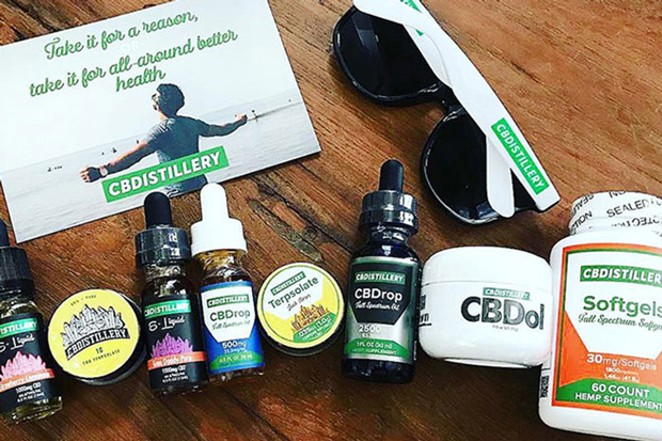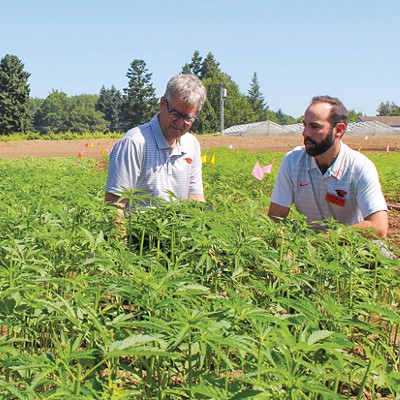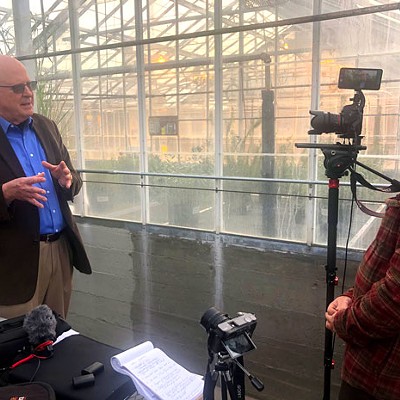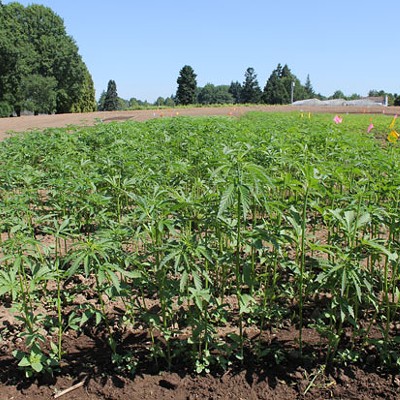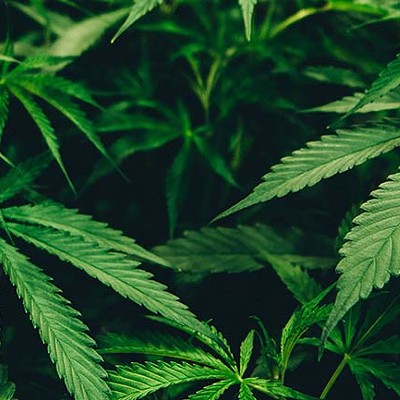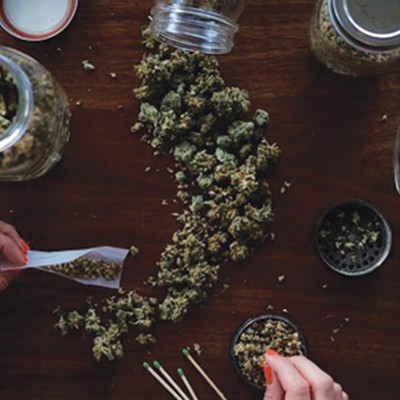Hemp is an ancient plant. The Romans and Babylonians recognized its useful properties in creating rope, textiles and even pharmaceuticals. Hemp stalks helped build bridges in medieval Europe. George Washington himself grew hemp to construct sails and nets for fishing the Potomac River. That is to say, humans have had some 5,000 years to study—and benefit from—this versatile plant.
Apparently, that's still not enough time for the U.S. government to tell us how we should grow it, sell it, and dispense its lucrative extracts, without worrying about a sharp knock at the door.
It's this absurd situation that has motivated lawmakers from both sides of the aisle in Washington, D.C., to badger the Food and Drug Administration into adopting rules related to hemp-derived cannabidiol, a non-psychoactive chemical that is used to make oils, lotions, ingredients in dietary supplements and so on.
Oregon Senator Ron Wyden (D-OR) has been among the Senate forerunners in urging the FDA and the Department of Health and Human Services to bring some clarity to the issue for hemp farmers and CBD processors. He issued a letter in June to HHS Secretary Alex Azar and FDA Commissioner Ned Sharpless, urging them to give some guidance by August 2019 to the industry as to their enforcement discretion. Wyden also asked the FDA to issue interim rules related to CBD before permanent rules are in place. (The FDA did not hit Wyden's suggested deadline.)
Senator Wyden is hardly alone in this effort. Twenty-six U.S. House members (including Republicans in such deep-red states as Alaska and Alabama) signed a letter issued to the FDA asking for the same thing. Senate Majority Leader Mitch McConnell (R-KY) also inserted language for consideration in the agricultural spending bill urging the FDA to issue enforcement guidelines.
Still, players in the hemp/CBD industry toil in a gray federal market. Apart from ensuring that their harvested hemp and CBD contain no more than .3% THC, and refraining from making outlandish medical claims, there is continued confusion among those trafficking in CBD.
Additional research is badly needed to determine CBD’s potential applications and dangers, if any.
tweet this
What could be the holdup? Well, executive branch agencies in the U.S. haven't exactly been helmed in consistent fashion during a Trump presidency that is not yet three years old. Trump has appointed five secretaries of the HHS in 32 months. (Obama had three over his eight-year presidency. George W. Bush had two.) The current FDA chief, Sharpless, has served as acting commissioner since the resignation of Scott Gottlieb in April.
Even with a less-chaotic resident at 1600 Pennsylvania, the opioid crisis would doubtlessly test the FDA of any administration. Yet stalling on CBD rules has arguably hurt the fight against opioid addiction. Scholarly works related to the effects of CBD in reducing opioid prescriptions are mounting. Preliminary studies have experts describing a "sparing" effect, where opioid painkillers are more easily curtailed when replaced with CBD supplements. CBD has a famous association with helping cure other ailments, too, including epilepsy, depression, anxiety and joint inflammation.
Far more emphasis in these studies, however, is placed on what we don't know. Additional research is badly needed to determine CBD's potential applications and dangers, if any. And that's not easily done when federal regulators won't even describe the rules of the game.
Notwithstanding the FDA's dragging feet, other federal agencies are stepping in to boost research of CBD. The National Institutes of Health recently sponsored $3 million worth of research grants to doctors at the Boston Children's Hospital, New York University School of Medicine and the University of Texas, among others, to determine to what extent CBD's analgesic benefits could potentially replace those of opioids.
Yet $3 million is literally the least the government can do. The opioid crisis has cost our nation over half a trillion dollars. With 50,000 acres worth of hemp being grown in Oregon (and thousands more acres awaiting approval by the Oregon Department of Agriculture), the state could be poised for an economic revolution if CBD is determined to be part of a viable fix for the opioid crisis, as well as a contributor to health and wellness in general.

